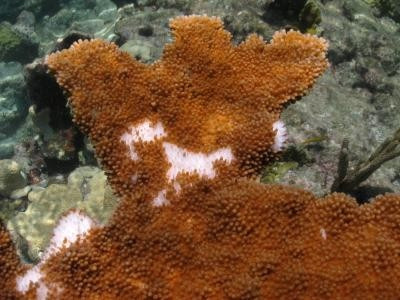Human Sewage Killing Endangered Caribbean Coral

Researchers have proved that bacteria in human sewage are responsible for killing an endangered type of coral found in the Caribbean, the first time humans pose a threat to a marine invertebrate.
Elkhorn coral, previously the most prevalent type found off the coast of the Florida Keys and throughout the Caribbean, has been declared endangered since a white pox disease set off a mass killing of the coral.
While scientists knew humans were the cause of the destruction of Elkhorn coral, researchers from Rollins College in Florida and the University of Georgia have identified Serratia marcescens, a bacterium found in human feces, to be the cause.
"When we identified Serratia marcescens as the cause of white pox, we could only speculate that human waste was the source of the pathogen because the bacterium is also found in the waste of other animals," said Kathryn Sutherland, associate professor of biology at Rollins College.
Serratia marcescens, which causes respiratory, urinary and skin infections in humans, destroys the soft tissues in the Elkhorn corals leaving behind a white skeleton. The death from white pox of Elkhorn coral can inevitably affect the coral reef habitat in general, since Elkhorn are widely known to contribute to reef growth and development.
The team of researchers conducted a series of experiments on healthy and dying Elkhorn corals, using human waste samples collected from a wastewater treatment facility and local animals, isolating the bacteria using genetic tests found in human feces as the white pox causing agent.
"The strain caused disease in Elkhorn coral in five days, so we now have definitive evidence that humans are a source of the pathogen that causes this devastating disease of corals," Sutherland said.
The coral has declined by almost 90 percent in just over a decade according to James Porter, professor of ecology at the University of Georgia.
"These bacteria do not come from the ocean, they come from us," Porter said. "But the good news is that we can solve this problem with advanced wastewater treatment facilities."
A wastewater treatment plant in Key West has taken action to inhibit the bacteria from entering the ocean, according to MSNBC, in the hopes that this can be the first step to preserve Elkhorn coral.
© Copyright IBTimes 2025. All rights reserved.






















